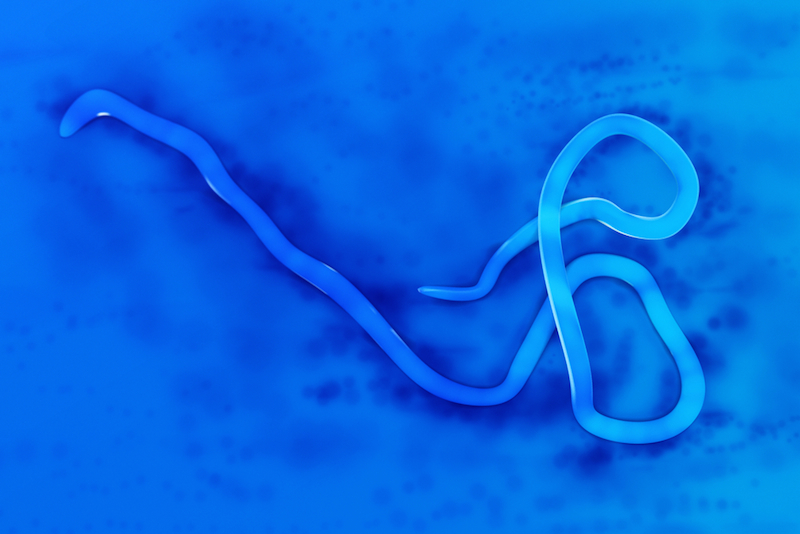Ebola Vaccine Starts Testing in Sierra Leone

Get the world’s most fascinating discoveries delivered straight to your inbox.
You are now subscribed
Your newsletter sign-up was successful
Want to add more newsletters?

Delivered Daily
Daily Newsletter
Sign up for the latest discoveries, groundbreaking research and fascinating breakthroughs that impact you and the wider world direct to your inbox.

Once a week
Life's Little Mysteries
Feed your curiosity with an exclusive mystery every week, solved with science and delivered direct to your inbox before it's seen anywhere else.

Once a week
How It Works
Sign up to our free science & technology newsletter for your weekly fix of fascinating articles, quick quizzes, amazing images, and more

Delivered daily
Space.com Newsletter
Breaking space news, the latest updates on rocket launches, skywatching events and more!

Once a month
Watch This Space
Sign up to our monthly entertainment newsletter to keep up with all our coverage of the latest sci-fi and space movies, tv shows, games and books.

Once a week
Night Sky This Week
Discover this week's must-see night sky events, moon phases, and stunning astrophotos. Sign up for our skywatching newsletter and explore the universe with us!
Join the club
Get full access to premium articles, exclusive features and a growing list of member rewards.
A new Ebola vaccine study starting in Sierra Leone will test the vaccine in thousands of people who are working to fight the epidemic, health officials said today.
For the study, called STRIVE, researchers will enroll about 6,000 people — all of them health care workers or others who are on the front lines, such as cleaning staff at clinics and burial workers, according to the Centers for Disease Control and Prevention. The study will be conducted in the five districts of Sierra Leone that have been most affected by the Ebola outbreak.
Participants will receive the Ebola vaccine either right away or six months later (as part of a control group). The researchers will then compare the rates of Ebola among those who got the vaccine with the rates among those waiting to get the vaccine, officials said.
"I'm hopeful that what we learn from this clinical trial will help us get closer to finding a safe and effective tool" to protect people against Ebola during the current outbreak and future ones, Dr. Anne Schuchat, director of CDC's National Center for Immunization and Respiratory Diseases, said at a news conference today (April 14). [How Do Ebola Vaccines Work?]
The vaccine, called VSV-ZEBOV, consists of a virus that mainly infects animals (including rodents, cattle, swine and horses), called the vesicular stomatitis virus (VSV). In the vaccine, one gene of VSV has been replaced with the gene for the outer protein of the Zaire strain of the Ebola virus, which is the strain causing the current outbreak.
The vaccine cannot cause Ebola, but researchers said they hope it can stimulate the immune system enough to protect against the disease. Already, the vaccine has been tested for safety in about 800 people in the United States, Canada, Africa and Europe.
The CDC is conducting the study in partnership with several health institutions in Sierra Leone.
Get the world’s most fascinating discoveries delivered straight to your inbox.
Because it's not clear whether the vaccine provides enough protection against Ebola, people who receive the shot should still take the proper precautions to protect themselves from the disease, including wearing all the recommended personal protective equipment when treating sick people, officials said.
There has been some concern about the ability of vaccine trials to properly assess the effectiveness of Ebola vaccines, given the decline in Ebola cases in West Africa in recent months.
In the week of March 29 to April 5, there were only 30 new cases of Ebola reported in Guinea, Liberia and Sierra Leone — the lowest number of new cases in a week since May of last year, according the World Health Organization. (In Sierra Leone, there were nine new cases reported during the week of March 29 to April 5.)
"Of course, we're glad that the epidemic is improving in Sierra Leone and surrounding countries, and the case counts have come down," Schuchat said.
The researchers have adjusted the design of their trial to maximize its success, and they plan to define success in multiple ways, including looking at the level of people's immune response to the vaccine, Schuchat said. She also stressed that even though case counts have come down, people continue to be infected in the region.
Since the Ebola outbreak began in West Africa last year, there have been more than 25,500 cases and more than 10,000 deaths form the disease, according to the WHO.
Follow Rachael Rettner @RachaelRettner. Follow Live Science @livescience, Facebook & Google+. Original article on Live Science.

Rachael is a Live Science contributor, and was a former channel editor and senior writer for Live Science between 2010 and 2022. She has a master's degree in journalism from New York University's Science, Health and Environmental Reporting Program. She also holds a B.S. in molecular biology and an M.S. in biology from the University of California, San Diego. Her work has appeared in Scienceline, The Washington Post and Scientific American.
 Live Science Plus
Live Science Plus










